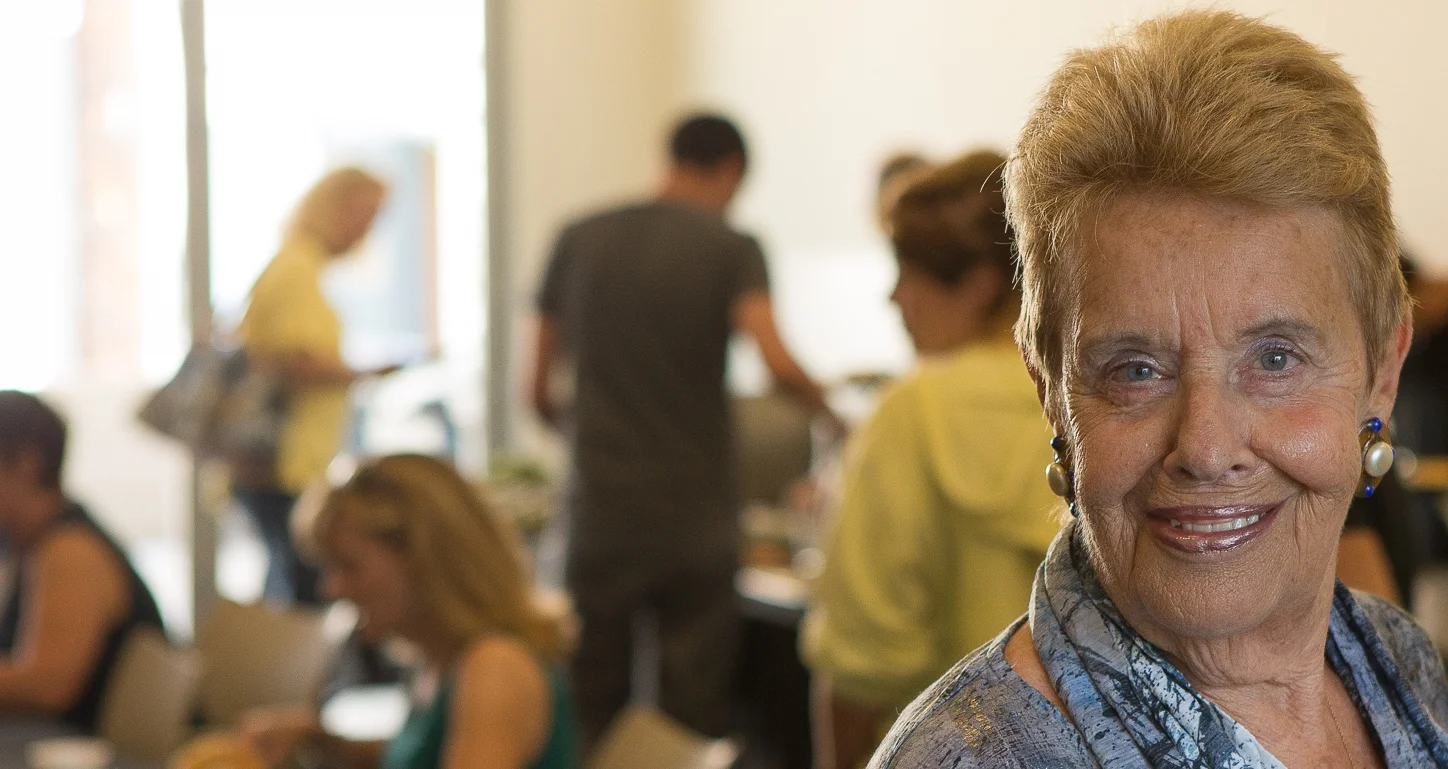Harriet Rossetto and Rabbi Mark met while Mark was incarcerated at the California Institute for Men—she, in a relatively new position as a social worker helping Jewish criminals, and Mark, a Jewish criminal. But they didn't recognize their fit as kismet at first: she thought he was loud and brash, and he thought she was cold and uptight. Their journey together is a testament to the power of giving people a second chance.
When Mark was released from prison in 1987, he found it difficult to find work due to his checkered background. He took Harriet up on a challenge to see if he knew how to help with rehabilitation and reentry any better than she did. Mark found himself knocking on the door of Beit T'Shuvah, which was at the time a small halfway house for men—it’s unclear who was more surprised.
Harriet Rossetto is a rebel spirit. A self-professed misfit, Harriet fiercely answered an urgent calling: helping broken souls and changing a broken system. Harriet’s belief that addiction is a malady of the soul, requiring spiritual healing, inspired her to create the Beit T’Shuvah community that, for nearly thirty years, has supported the process of recovery.
Since founding Beit T’Shuvah, which now boasts over 150 residents and 115 staff members, Harriet has become a model of authentic living, a heroic activist, an insightful friend, and a relationship “guru.” She mentors countless social workers and therapists across the nation, and, in 2015, was selected by the White House’s Office of National Drug Policy as one of seven honored “Advocates for Action” for her groundbreaking innovation and influence.
Harriet is an educator, a counselor, a consultant, and an advocate for the soul. Her book, Sacred Housekeeping: A Spiritual Memoir, which recounts her incredible personal and professional story, is part of the nationally recognized core curriculum of Beit T'Shuvah.
Harriet Rossetto is Rabbi Mark’s ezer k'negdo, his “help meet.” And he is honored beyond words to be hers.


